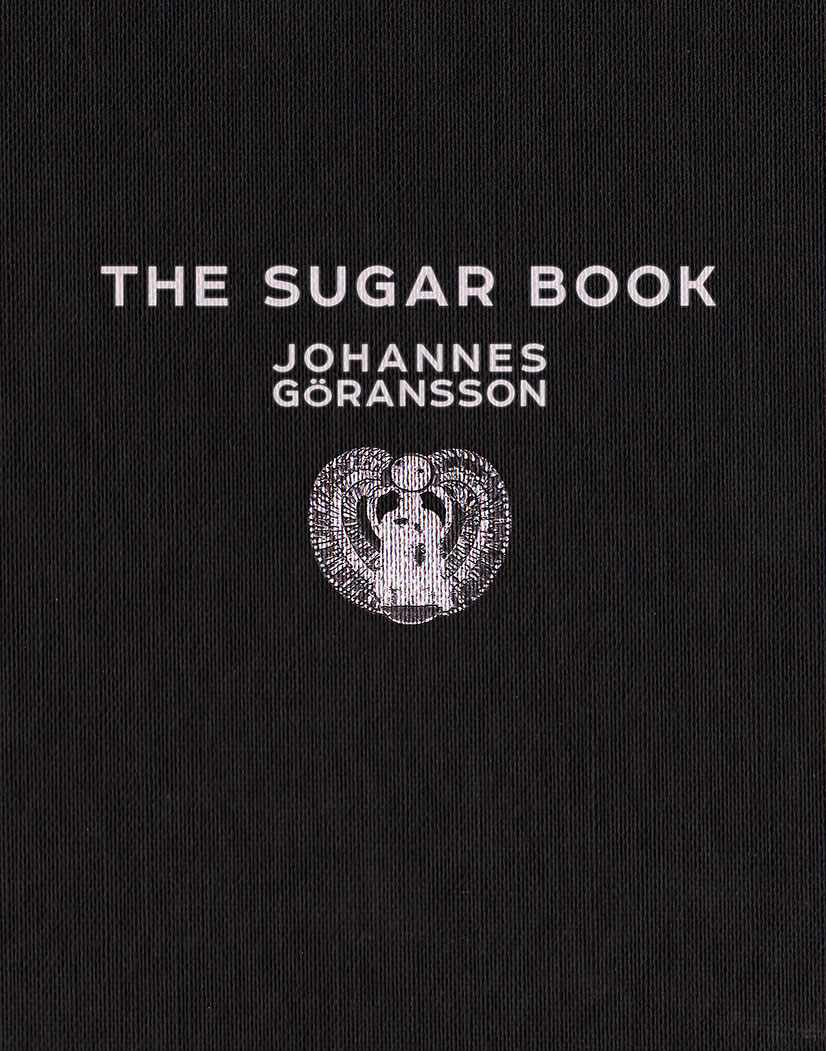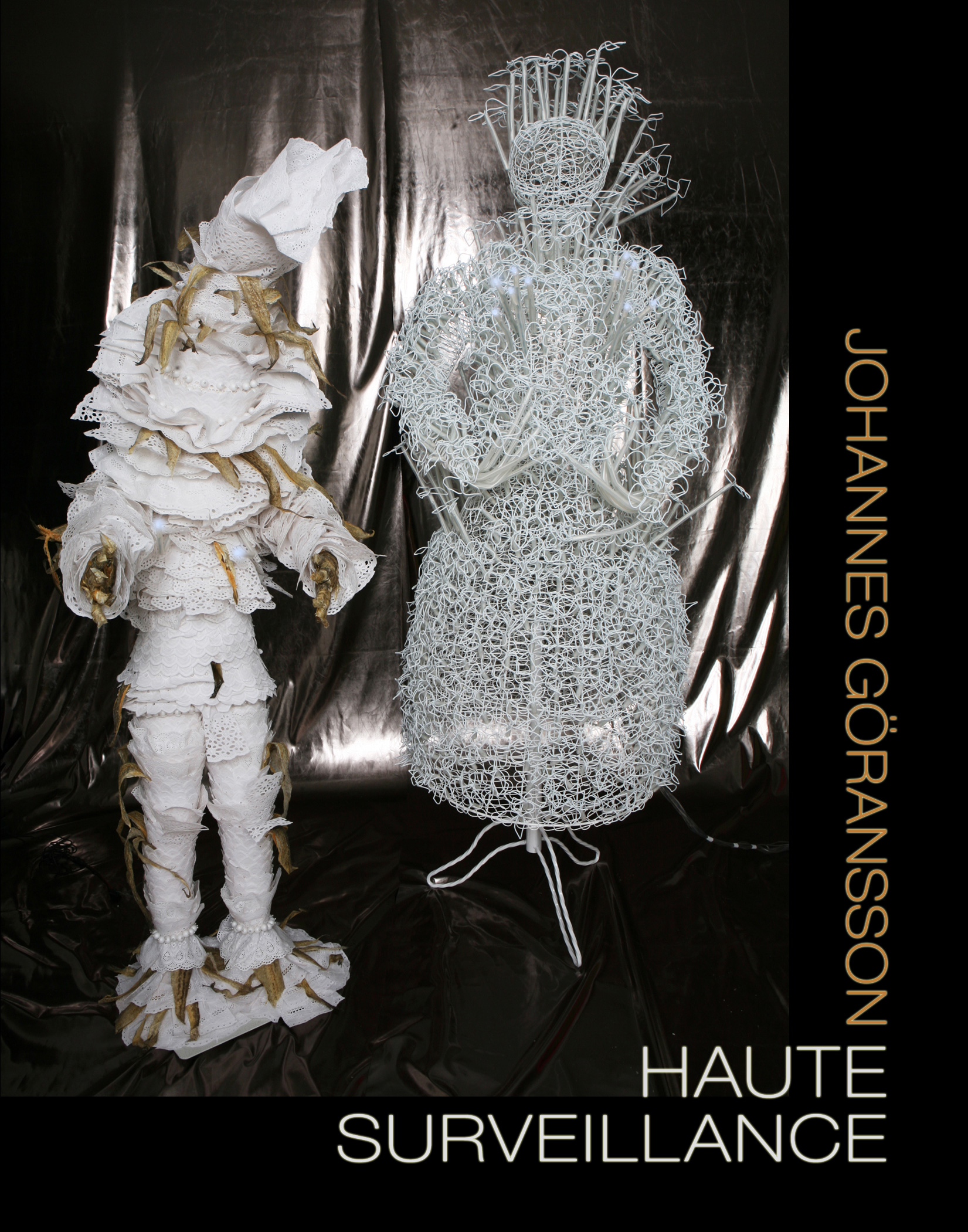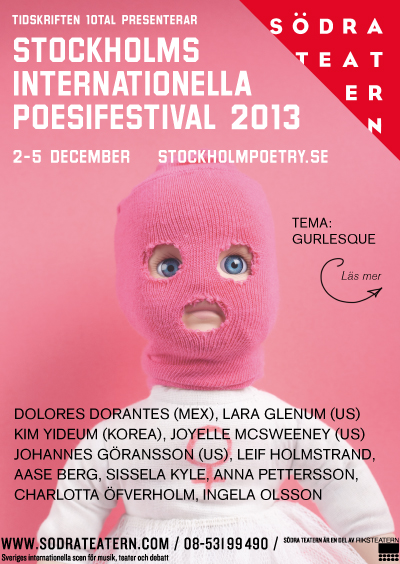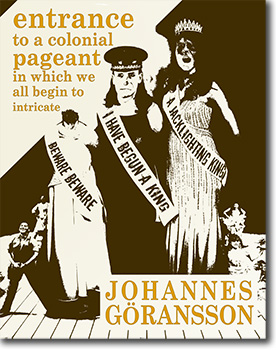Johannes Göransson
Johannes Göransson is the author of five books with Tarpaulin Sky Press — Entrance to a colonial pageant in which we all begin to intricate (2011), Haute Surveillance (2013), The Sugar Book (2015), Poetry Against All: A Diary (2020), and Summer (2022) — in addition to three previous collections of poems: A New Quarantine Will Take My Place, Dear Ra, Pilot (“Johann the Carousel Horse”) He has also translated several books, including Aase Berg’s Hackers, Dark Matter, Transfer Fat, and With Deer as well as Ideals Clearance by Henry Parland and Collobert Orbital by Johan Jönson.
Göransson emigrated with his family from Skåne, Sweden to the United States at age 13. He earned a BA from the University of Minnesota, an MFA from the Iowa Writers’ Workshop, and his PhD from the University of Georgia. Today, in addition to writing and translating books, he teaches at the University of Notre Dame in Indiana, and together with his wife, Tarpaulin Sky author Joyelle McSweeney, Göransson co-publishes Action Books.
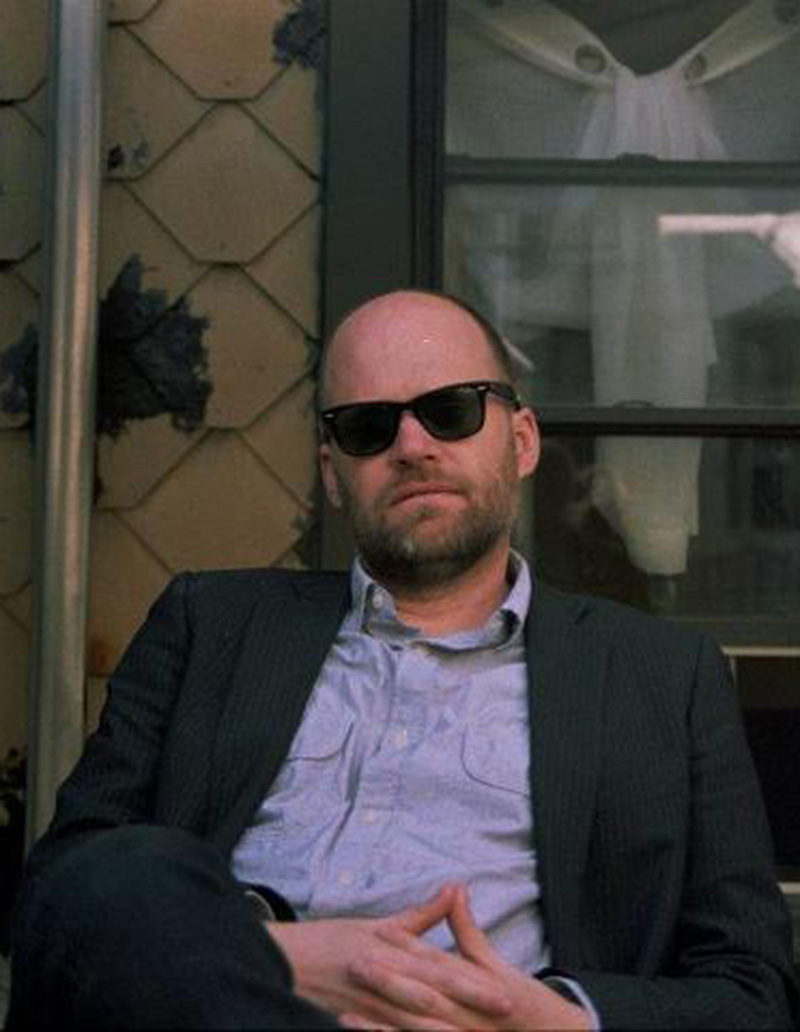

Johannes Göransson
Johannes Göransson is the author of five books with Tarpaulin Sky Press — Entrance to a colonial pageant in which we all begin to intricate (2011), Haute Surveillance (2013), The Sugar Book (2015), Poetry Against All: A Diary (2020), and Summer (2022) — in addition to three previous collections of poems: A New Quarantine Will Take My Place, Dear Ra, Pilot (“Johann the Carousel Horse”) He has also translated several books, including Aase Berg’s Hackers, Dark Matter, Transfer Fat, and With Deer as well as Ideals Clearance by Henry Parland and Collobert Orbital by Johan Jönson.
Göransson emigrated with his family from Skåne, Sweden to the United States at age 13. He earned a BA from the University of Minnesota, an MFA from the Iowa Writers’ Workshop, and his PhD from the University of Georgia. Today, in addition to writing and translating books, he teaches at the University of Notre Dame in Indiana, and together with his wife, Tarpaulin Sky author Joyelle McSweeney, Göransson co-publishes Action Books.
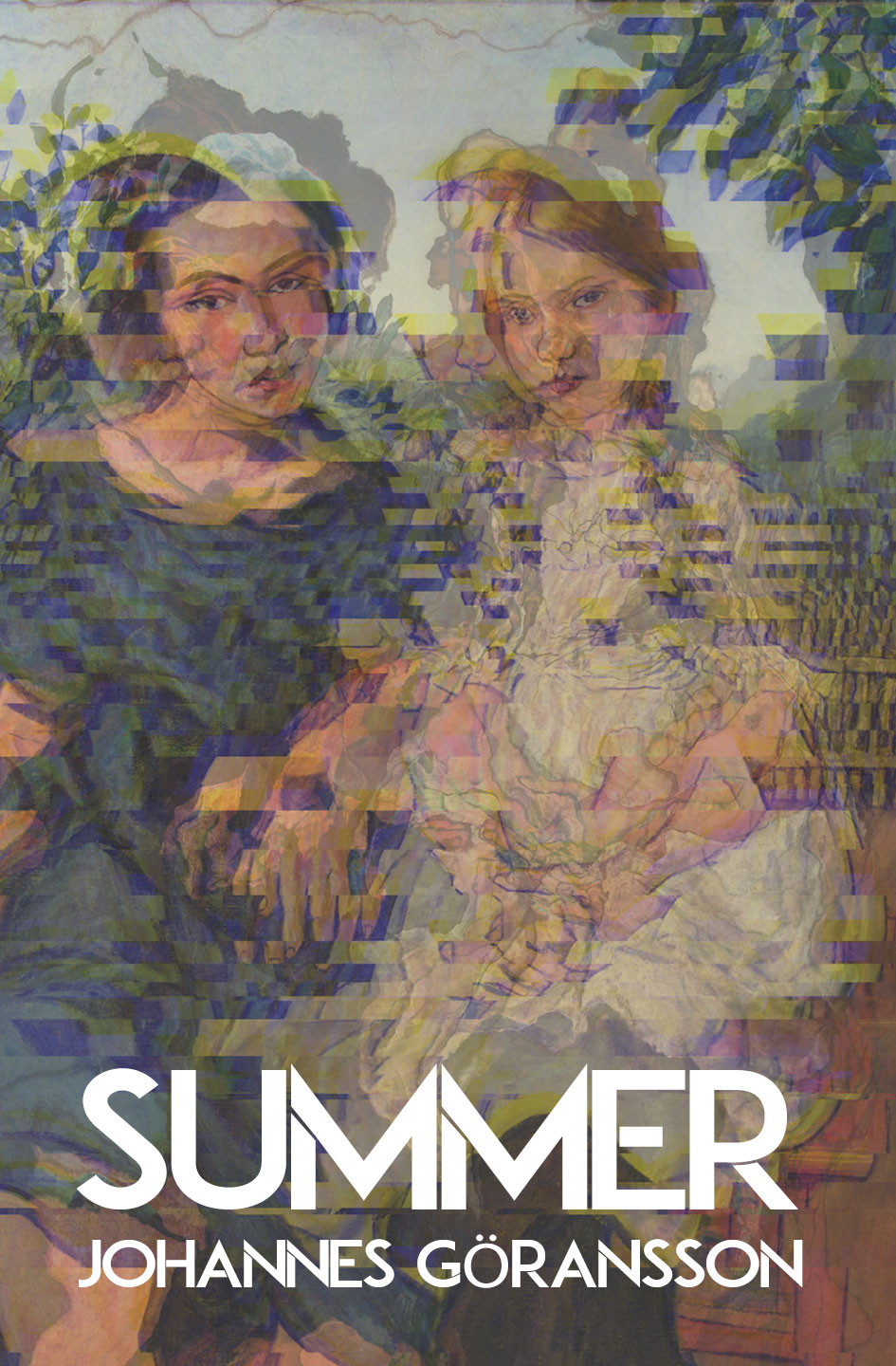
Summer
by Johannes Göransson
Poetry. 120 pages. Paperback. August 2022
READ POEMS FROM SUMMER
Poetry Foundation | Poetry Daily | Poets.org | Brooklyn Rail | Lyrikline | Buenos Aires Poetry | Crevice | House Mountain Review
“Written into and through the death of his infant daughter from a rare lung condition, Göransson’s elegy/revenge fantasy (to paraphrase his description of Summer) captivated me like few collections I’ve read in the past year…. ‘I call the poem Daughter,’ he writes, ‘then I call the hole in her lungs The World.’ The absence that becomes everything. There is no poem. There is no patch.”
— fck yr bookclub
“A mesmerizing artwork, a nerve loaded with punishing sensitivity…. Göransson dwells in the ruinous charm that stretches through every blooming thing with vicious candor.”
— Heavy Feather Review
Poetry Against All
by Johannes Göransson
Memoir
140 pages. Paperback. 2020
$18 in stores. $15 w/free U.S. shipping, direct from TS Press.
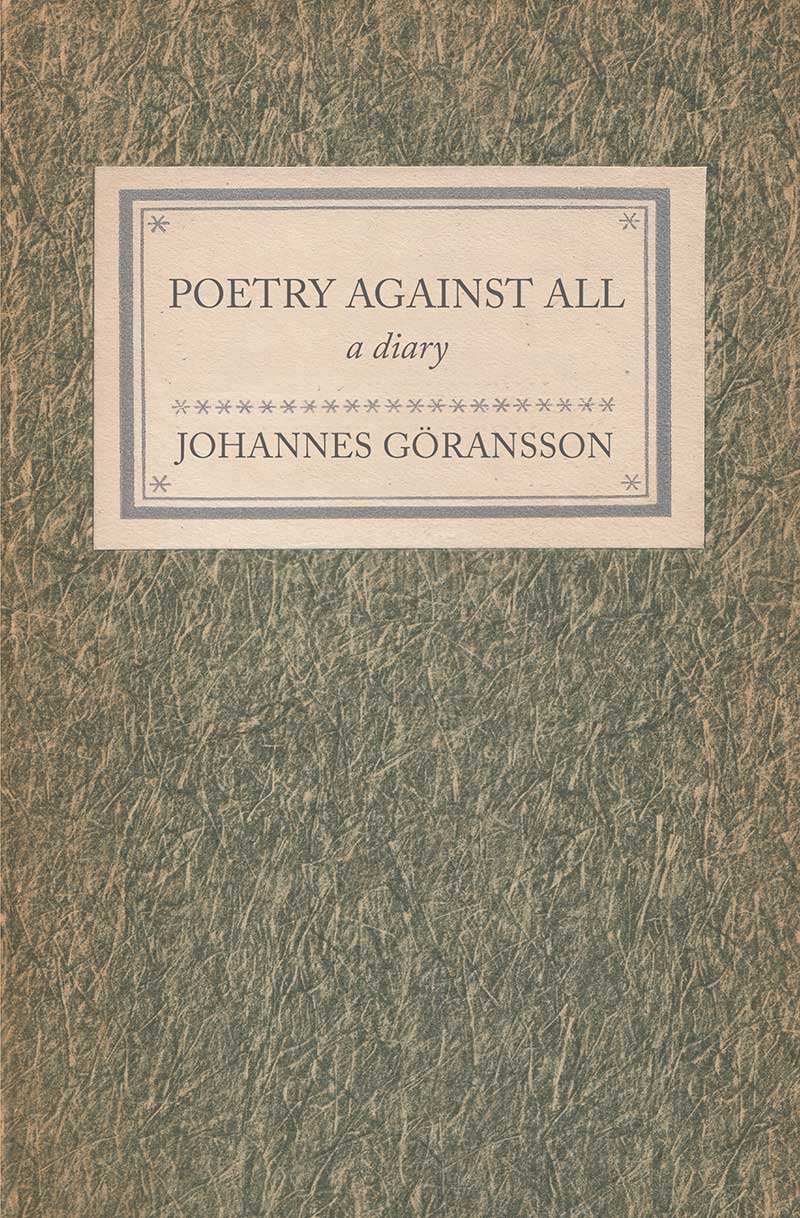

Poetry Against All
by Johannes Göransson
Memoir
140 pages. Paperback. 2020
$18 in stores. $15 w/free U.S. shipping, direct from TS Press.
The most recent genre-bending book from a writer who detonates the lanes that in which mainstream writing is content to stay, from the predictable frisson caused by coolly deadpan conceptual poetry to the packaged emotional uplift of what Ron Silliman called the “School of Quietude.”.. This book of 45 short prose entries may not be poetry in either the conventional or avant-garde sense, but it is poetry nevertheless. (John Yau, Hyperallergic) I was drawn by the breadth of Goransson’s discussions of film, music, and writing, and the aesthetics of pornography, debasement, kitsch, moralism, and nostalgia. He emphasizes an organic and visceral reading and writing practice … embracing a masochistic relationship to art by allowing oneself to be ravished by it. (Ryan Bollenbach, Big Other) This slim journal contains multitudes. It’s a compulsively readable account of returning to a childhood home, a provocative meditation on artists such as Susan Sontag, Francesca Woodman, and Andrei Tarkovsky, and a radical reexamination of concepts like ruin porn, tourism, and translation. But mostly it’s an urgent manifesto. “Poetry is obscene,” Göransson writes. “But there are those who want to maintain the illusion that it is good for us.” This necessary book strips away the various illusions that have obscured poetry’s truest values. Göransson concludes: “This is written without hope.” But paradoxically, Poetry Against All offers just that. (Jeff Jackson) Moralists who find themselves clutching their pearls about this book of noir perversions should read less literally and see that Göransson’s Poetry Against All — for all its anti-libidinous interrogations of pornography, the Holocaust, and cadavers — concerns some of the most relatably humanist emotions of all: grief, the meaning of home, and the protectiveness one has about one’s children. Göransson imagines pornography as the body at the edge of otherness, at once alluring and perverse, which is not unlike the lens through which he conceives his own role as immigrant, the contaminant in our body politic, alive to the sheer horror of America but never quite able to go home himself. (Ken Chen)
The most recent genre-bending book from a writer who detonates the lanes that in which mainstream writing is content to stay, from the predictable frisson caused by coolly deadpan conceptual poetry to the packaged emotional uplift of what Ron Silliman called the “School of Quietude.”.. This book of 45 short prose entries may not be poetry in either the conventional or avant-garde sense, but it is poetry nevertheless. (John Yau, Hyperallergic) I was drawn by the breadth of Goransson’s discussions of film, music, and writing, and the aesthetics of pornography, debasement, kitsch, moralism, and nostalgia. He emphasizes an organic and visceral reading and writing practice … embracing a masochistic relationship to art by allowing oneself to be ravished by it. (Ryan Bollenbach, Big Other) This slim journal contains multitudes. It’s a compulsively readable account of returning to a childhood home, a provocative meditation on artists such as Susan Sontag, Francesca Woodman, and Andrei Tarkovsky, and a radical reexamination of concepts like ruin porn, tourism, and translation. But mostly it’s an urgent manifesto. “Poetry is obscene,” Göransson writes. “But there are those who want to maintain the illusion that it is good for us.” This necessary book strips away the various illusions that have obscured poetry’s truest values. Göransson concludes: “This is written without hope.” But paradoxically, Poetry Against All offers just that. (Jeff Jackson) Moralists who find themselves clutching their pearls about this book of noir perversions should read less literally and see that Göransson’s Poetry Against All — for all its anti-libidinous interrogations of pornography, the Holocaust, and cadavers — concerns some of the most relatably humanist emotions of all: grief, the meaning of home, and the protectiveness one has about one’s children. Göransson imagines pornography as the body at the edge of otherness, at once alluring and perverse, which is not unlike the lens through which he conceives his own role as immigrant, the contaminant in our body politic, alive to the sheer horror of America but never quite able to go home himself. (Ken Chen)
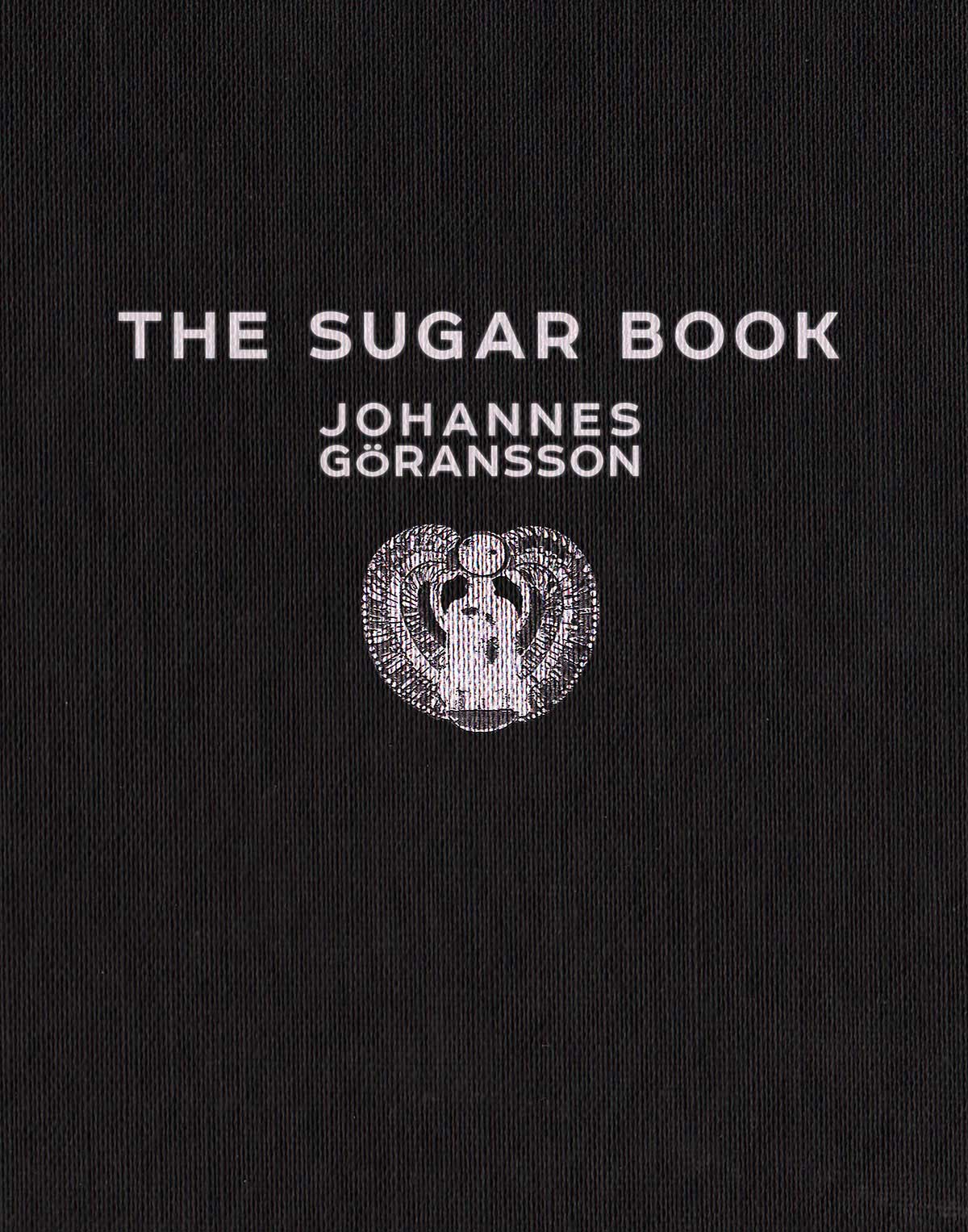
The Sugar Book
by Johannes Göransson
A Small Press Distribution Best Seller
Fiction | Poetry | Other
208 pages. Paperback. 2015
Excerpts: Ampersand | Denver Quarterly | Fanzine | Lana Turner | Montevidayo | Phoebe | Similar Peaks | The Volta
Doubling down on his trademark misanthropic imagery amid a pageantry of the unpleasant, Johannes Göransson strolls through a violent Los Angeles in this hybrid of prose and verse…. The motifs are plentiful and varied, including constant reworkings of image-driven ideas, among them prostitution, pubic hair, Orpheus, law, pigs, disease, Francesca Woodman … and the speaker’s hunger for cocaine and copulation….. Fans of Göransson’s distorted poetics will find this a productive addition to his body of work. (Publishers Weekly)

The Sugar Book
by Johannes Göransson
A Small Press Distribution Best Seller
Fiction | Poetry | Other
208 pages. Paperback. 2015
Excerpts: Ampersand | Denver Quarterly | Fanzine | Lana Turner | Montevidayo | Phoebe | Similar Peaks | The Volta
Doubling down on his trademark misanthropic imagery amid a pageantry of the unpleasant, Johannes Göransson strolls through a violent Los Angeles in this hybrid of prose and verse…. The motifs are plentiful and varied, including constant reworkings of image-driven ideas, among them prostitution, pubic hair, Orpheus, law, pigs, disease, Francesca Woodman … and the speaker’s hunger for cocaine and copulation….. Fans of Göransson’s distorted poetics will find this a productive addition to his body of work. (Publishers Weekly)
Sends its message like a mail train. Visceral Surrealism. His end game is an exit wound. (Geoffrey Cruickshank-Hagenbuckle, Fanzine) As savagely anti-idealist as Burroughs or Guyotat or Ballard. (James Pate, Entropy Magazine) Takes the reader far beyond their comfort zone, as poetry should. Just like Los Angeles herself, the poems inhabit that glittering/grotesque duality of Kardashian Family and Manson Family. (Carleen Tibbetts, American Microreviews) I’m not sure that even Rimbaud would title a poem “My Sperm Gets in the Flowers” (Johnny Payne, Cleaver Magazine) convulses wildly like an animal that has eaten the poem’s interior and exterior all together with silver. bang bang. (Kim Hyesoon) These poems made me cry. So sad and anxious and genius and glarey bright. (Rebecca Loudon)
Sends its message like a mail train. Visceral Surrealism. His end game is an exit wound. (Geoffrey Cruickshank-Hagenbuckle, Fanzine) As savagely anti-idealist as Burroughs or Guyotat or Ballard. (James Pate, Entropy Magazine) Takes the reader far beyond their comfort zone, as poetry should. Just like Los Angeles herself, the poems inhabit that glittering/grotesque duality of Kardashian Family and Manson Family. (Carleen Tibbetts, American Microreviews) I’m not sure that even Rimbaud would title a poem “My Sperm Gets in the Flowers” (Johnny Payne, Cleaver Magazine) convulses wildly like an animal that has eaten the poem’s interior and exterior all together with silver. bang bang. (Kim Hyesoon) These poems made me cry. So sad and anxious and genius and glarey bright. (Rebecca Loudon)
Haute Surveillance
by Johannes Göransson
Fiction | Poetry | Other
200 pages. Paperback. 2013
Cover art: Fi Jae Lee: “The Poet Yi Sang’s Wedding and Funeral”
2011. Fish Skin, Lace, Wire.
… Insects are pumping their lancets in and out of my sore. It’s an almost purple sore. It’s a translation. Pornography. A child’s drawing. My preferred method of making art involves a torso. I write this for the mute actress and the dead girls and the Virgin Father who speaks in this mausoleum and Mother Machine Gun who carries my body through the tumultuous crowds. Sticky and stricken-out, I write this for people on posters. I write this for the breathers and bleeders. I write this with a geometry suggesting awkwardness. I write this as a punishment. I write this for those infested and luxurious and teeming. I write this for the people who are at war. I vandalize my do-wop body due to my modest self-control. I call my line of work haute surveillance.
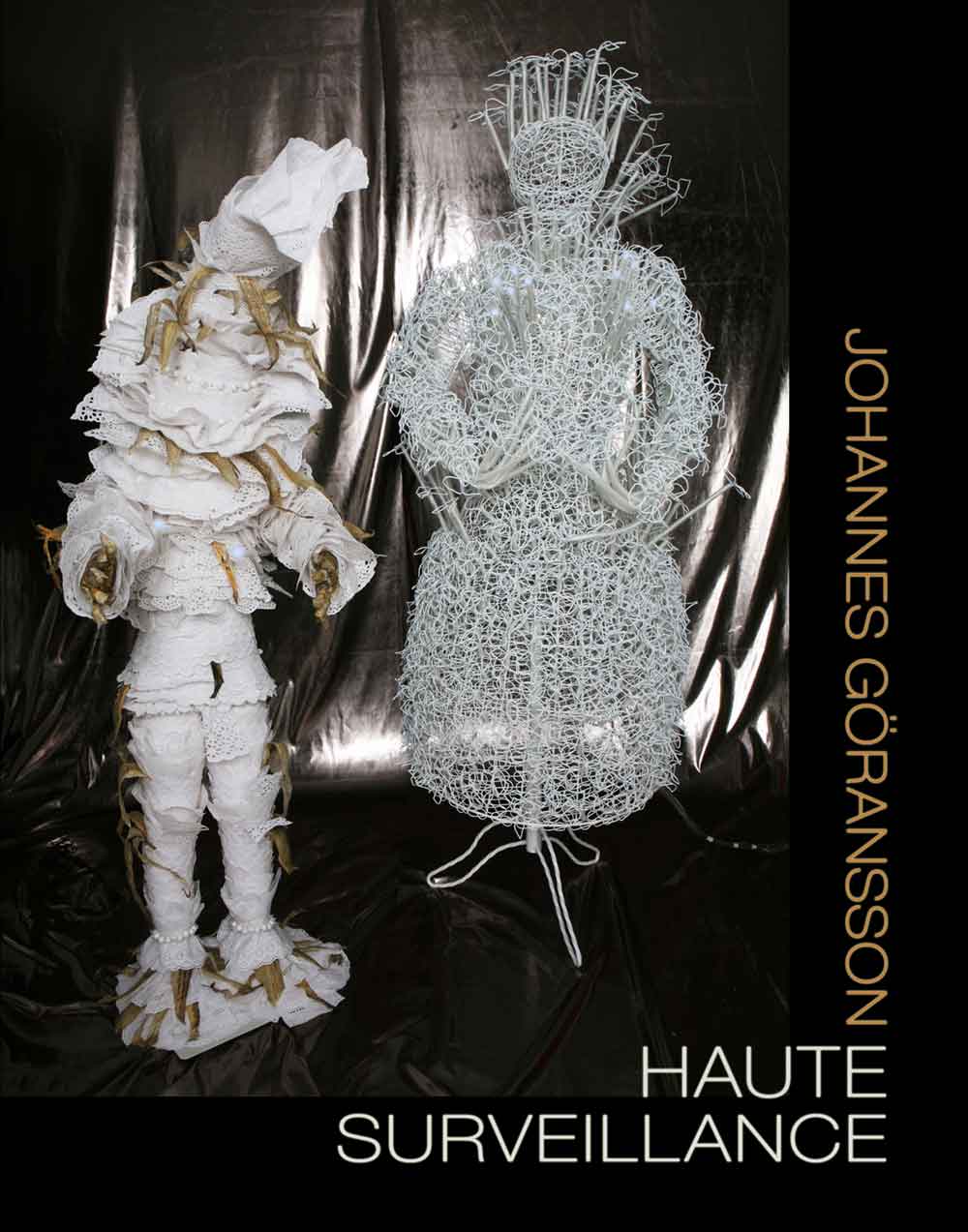

Haute Surveillance
by Johannes Göransson
Fiction | Poetry | Other
200 pages. Paperback. 2013
Cover art: Fi Jae Lee: “The Poet Yi Sang’s Wedding and Funeral”
2011. Fish Skin, Lace, Wire.
… Insects are pumping their lancets in and out of my sore. It’s an almost purple sore. It’s a translation. Pornography. A child’s drawing. My preferred method of making art involves a torso. I write this for the mute actress and the dead girls and the Virgin Father who speaks in this mausoleum and Mother Machine Gun who carries my body through the tumultuous crowds. Sticky and stricken-out, I write this for people on posters. I write this for the breathers and bleeders. I write this with a geometry suggesting awkwardness. I write this as a punishment. I write this for those infested and luxurious and teeming. I write this for the people who are at war. I vandalize my do-wop body due to my modest self-control. I call my line of work haute surveillance.
Beautifully startling and fucked and funny and tender and sad and putrid and glitter-covered all at once. (Blake Butler, VICE) So filled with invention and wit and ferocity that I was compelled to read it, at times against my will, mesmerized, enthralled. (Carole Maso) A book that is unclassifiable — part epic poem, part science fiction, part pornographic film, and all literature. John Yau, Hyperallergic) It’s spectacular, it’s pyrotechnics, it’s naked bodies and sex and orgies…. And there is trauma. It’s an emergency, a state of emergency. “The trauma saturates the mansion, it’s a trauma-rama.” (Laura Carter, Fanzine)
Beautifully startling and fucked and funny and tender and sad and putrid and glitter-covered all at once. (Blake Butler, VICE) So filled with invention and wit and ferocity that I was compelled to read it, at times against my will, mesmerized, enthralled. (Carole Maso) A book that is unclassifiable — part epic poem, part science fiction, part pornographic film, and all literature. John Yau, Hyperallergic) It’s spectacular, it’s pyrotechnics, it’s naked bodies and sex and orgies…. And there is trauma. It’s an emergency, a state of emergency. “The trauma saturates the mansion, it’s a trauma-rama.” (Laura Carter, Fanzine)
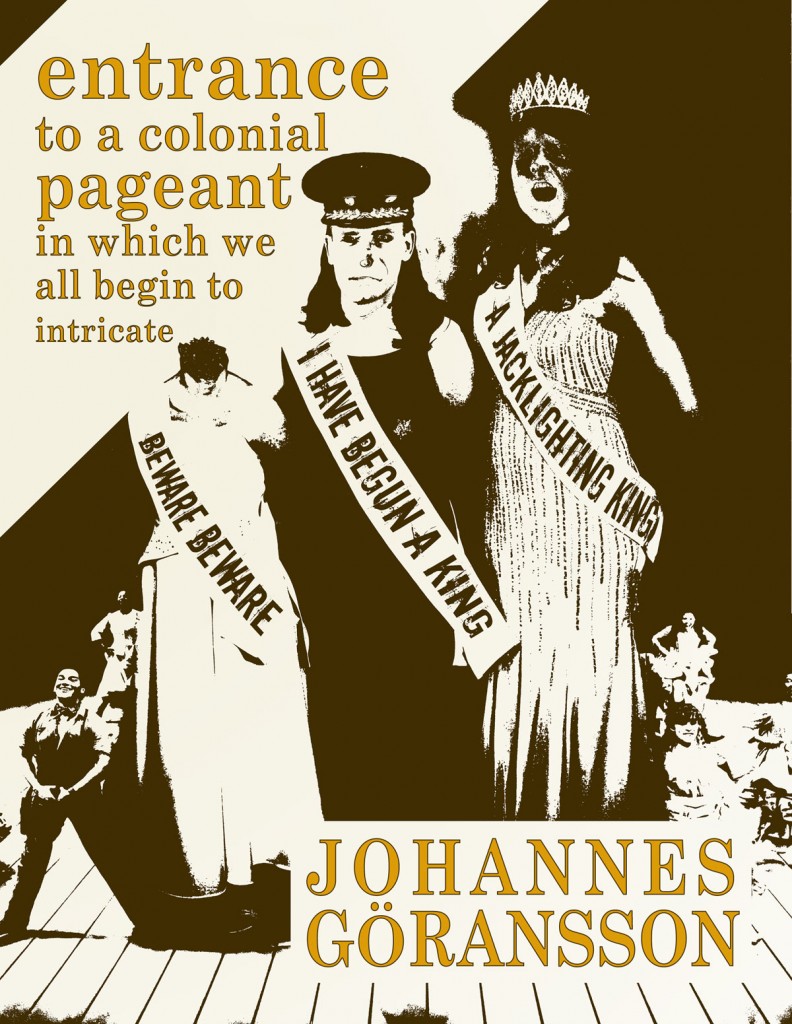
Entrance to a colonial pageant in which we all begin to intricate
by Johannes Göransson
A Small Press Distribution Best Seller
Fiction | Poetry | Drama
100 pages. Paperback. 2011
I don’t know where else you could contract the plague in these words but by ten TVs at once. On the TVs play: Salo, the weather channel, 2x Fassbinder (any), Family Double Dare, ads for ground beef, blurry surgical recordings, porno, porno, Anger (all). An 11th TV right behind you will show you yourself reading to the backside of your head. You’ll need a machine gun and a body double. You will not feel your disease: as here these words bring such high pleasure: this malaria is fun. It’s also fidgety, petrifying, elegantly rash, giddy, stunned. Burroughs and Genet and ‘Pac are dead. Long live Goransson. (Blake Butler) Body parts, body styles. Genitalia as fashion, as construct, as exploit. Göransson has managed to produce a discomfiting, filthy, hilarious, and ecstatic piece of literature that is cocked and ready. (Lorian Long, Bookslut) Voluptuous, turbulent, and focused, inventive and strictly faithful to the performative instability of our queer moment, Johannes Goransson’s new book brings page and stage together in order to put genre (and gender) to a series of on-going tests. Here body and body of work (inextricable) are in a critical condition: subject to an invasive and relentless interpretation. (Laura Mullen) Goransson pays the ultimate penance and shoulders the heaviest burden: to reflect a culture accurately, no matter how disfigured. His art drinks deep of the disease it most fears so that we can learn more from his symptoms. So for all its ugliness—all its child predators and body dysmorphia, its castrations, its Ronald Reagans, its hate crimes and artists and anorexia, everything—Entrance is the dubious gift of the diagnosis we’ve been too afraid to confront on our own. It’s embarrassing, it’s frightening, but it’s also potentially the long-neglected first step in addressing a major disease. (Nick Demske) Page after page begins to infect the reader, begins to parasite the reader as host, parasite the host’s inner child . . . before immolating the host, the reader. (Joseph Michael Owens, PANK Magazine)
I don’t know where else you could contract the plague in these words but by ten TVs at once. On the TVs play: Salo, the weather channel, 2x Fassbinder (any), Family Double Dare, ads for ground beef, blurry surgical recordings, porno, porno, Anger (all). An 11th TV right behind you will show you yourself reading to the backside of your head. You’ll need a machine gun and a body double. You will not feel your disease: as here these words bring such high pleasure: this malaria is fun. It’s also fidgety, petrifying, elegantly rash, giddy, stunned. Burroughs and Genet and ‘Pac are dead. Long live Goransson. (Blake Butler) Body parts, body styles. Genitalia as fashion, as construct, as exploit. Göransson has managed to produce a discomfiting, filthy, hilarious, and ecstatic piece of literature that is cocked and ready. (Lorian Long, Bookslut) Voluptuous, turbulent, and focused, inventive and strictly faithful to the performative instability of our queer moment, Johannes Goransson’s new book brings page and stage together in order to put genre (and gender) to a series of on-going tests. Here body and body of work (inextricable) are in a critical condition: subject to an invasive and relentless interpretation. (Laura Mullen) Goransson pays the ultimate penance and shoulders the heaviest burden: to reflect a culture accurately, no matter how disfigured. His art drinks deep of the disease it most fears so that we can learn more from his symptoms. So for all its ugliness—all its child predators and body dysmorphia, its castrations, its Ronald Reagans, its hate crimes and artists and anorexia, everything—Entrance is the dubious gift of the diagnosis we’ve been too afraid to confront on our own. It’s embarrassing, it’s frightening, but it’s also potentially the long-neglected first step in addressing a major disease. (Nick Demske) Page after page begins to infect the reader, begins to parasite the reader as host, parasite the host’s inner child . . . before immolating the host, the reader. (Joseph Michael Owens, PANK Magazine)

